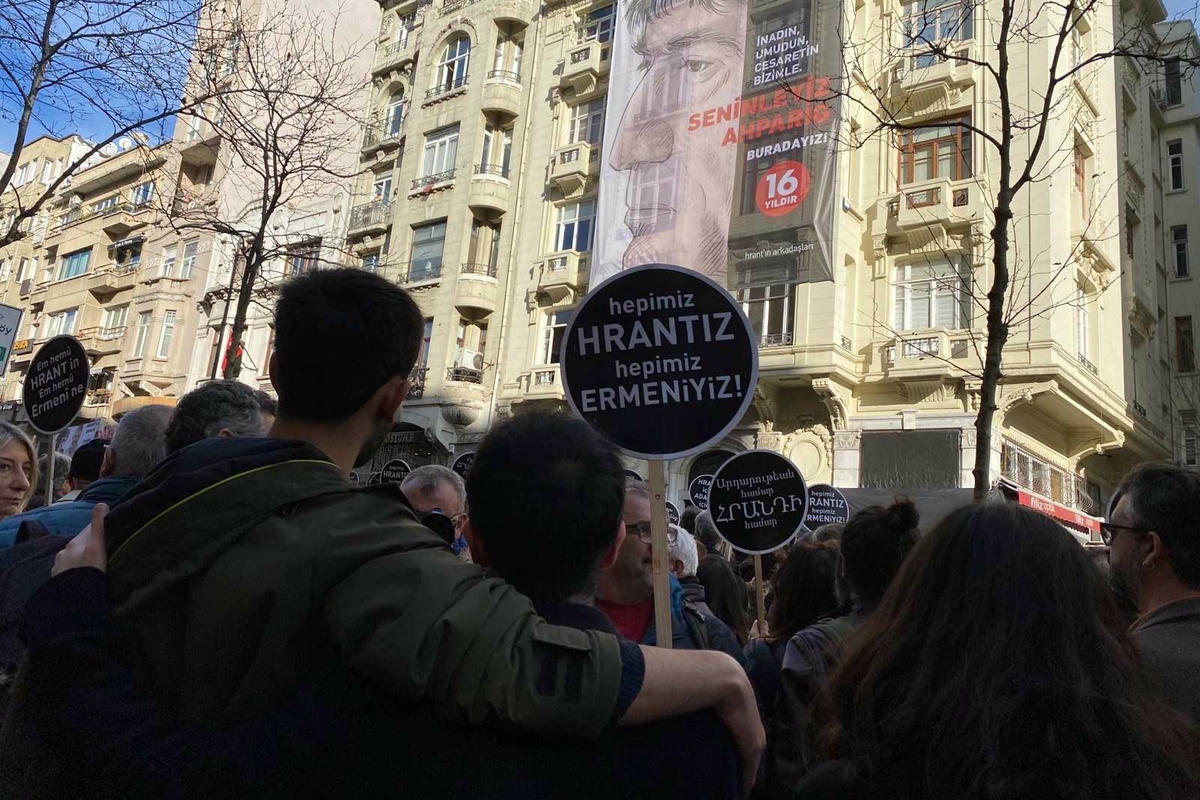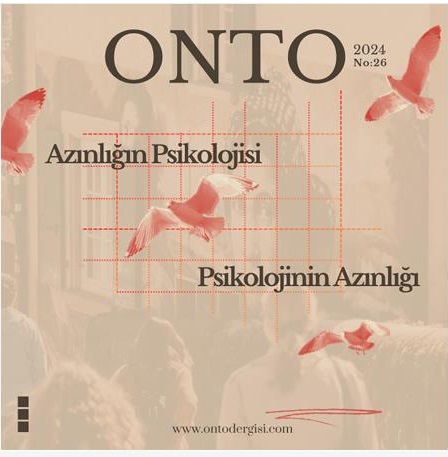The psychology that minorities are pushed to, minorities in psychology


In which year could the first graduate thesis on the Kurdish issue in psychology have been done? Considering the historical and structural problems of the Turkish academia and the “sensitivity” of the subject, you would guess that this date would already be too late, but you are surprised by this much: 2009. The date of the first article on Kurds published in social psychology journals in international indexes is 2013.
This information is from the issue titled “Azınlığın Psikolojisi, Psikolojinin Azınlığı (Psychology of the Minority, Minority of Psychology)” of Onto magazine, which has been publishing online since 2013; from the article titled “‘Türk Psikolojisinin Kör Noktası: Kürtler (Turkish’ Psychology's Blind Spot: Kurds)”. The editor of the issue, Aydın Bayad, says in his introduction that they prefer a perspective that does not get stuck in the confines of a narrow academic interest and does not focus on a specific psychological variable or mechanism. The theme's inextricable connection with the present and the roots of the problems that transcend the academy really required such a perspective. Therefore, the issue, which consists of nine articles and an interview with the team of Psychology Kurdî magazine, is meaningful and thought-provoking for readers outside the field.
Continuing from the article “'Türk’ Psikolojisinin Kör Noktası: Kürtler” will serve to highlight the typical and, in fact, primarily ideology-driven problems that arise at the intersection of minority groups with psychology in Turkey. The fact that the theories and concepts of social psychology cannot be studied in isolation from the values of the researcher and the culture and society in which he or she is embedded brings theoretical, methodological and contextual dilemmas. Moreover, even if you step out of the Turkish psychological realm, where Turkish identity is mainstreamed, and look globally, you are confronted with a white, Western, often heterosexual and male lens. The value judgments of the dominant, the privileged are always more dominant, and critical approaches are “in the minority” in line with the theme. Critical Race Theory, decolonial and intersectional feminist perspectives find less space in psychology. The “danger of treating one-sided official history as an objective ontology” and of conducting studies away from the historical, cultural and political context they mention apply to the social sciences in general. In this field, however, it works in a very radical way, the defense of the supreme interests of the nation-state can be the primary goal, or the guise of “impartiality” can directly align the researcher with power.

This is not the only problem, for example, the authors note that in existing academic studies, “intergroup contact is often measured in terms of the number of Kurdish friends participants have”. Other common weaknesses include the reduction of individuals to research objects, the predominance of a conflict-oriented perspective, treating the “Kurdish” as a group free from structural inequalities and power differences, or the attempt to apply American and Western European narratives of prejudice and discrimination against minority groups to the reality of Turkey. This is also interesting: When they analyzed quantitative research with Kurdish participants, they found that more than 80 percent of them were students. More than 60 percent of them come from Istanbul or western cities. This is a methodological problem that will shape the final output and cannot be explained by simplicity alone.
The issue also includes an interview with the volunteer team of Psychology Kurdî magazine, which was published in 2016. In general, they have a concern to address every aspect of a field like psychology, which is instrumentalized by the middle class who want to pay money and be good, and to explore psychology from the Kurdish perspective. Publishing the magazine in Kurdish is meaningful but also difficult; it requires finding Kurdish equivalents for terms and bringing basic sources into the language.
Dink's assassination as a breaking point
Rudi Sayat Pulatyan's article in the journal titled “Türkiyeli Genç Ermenilerin Kimlik Algıları ve Hrant Dink Suikastı (Identity Perceptions of Young Armenians from Turkey and the Hrant Dink Assassination)” is based on his thesis based on his own experiences. He aimed to look at how policies and oppression originating from both the society in general and the Armenian community in particular shape the process of “becoming Armenian” and the impact of the assassination of Hrant Dink on the process. For his thesis, she interviewed six women and six men between the ages of 18-30, in 2020.
Pulatyan cites Lerna Ekmekçioğlu's study of the Armenian community in post-Republican Turkey, which identifies a process of introversion or a belief in maintaining good relations with the state in order to survive. Another basis is the approach of Hratch Tchilingirian who, despite these reflexes, speaks of another wing within the Armenian community, supported by left-wing or liberal intellectuals, advocating integration with the wider society. His interviews give signs of a transforming youth identity that does not fit into these two extremes. For them, too, the family is an institution that carries the boundaries of Armenianness in terms of culture, traditions, how to behave on the street and who to befriend. They talk about the weight of carrying these two identities which belong both inside and outside. One participant talks about how her grandmother, who lives in the basement, speaks Turkish from outside through the window and Armenian when she enters the house and closes the door; how that window becomes a border. Hiding the cross, having a “safe” Turkish name next to the Armenian name are among the lively tendencies. It is a good example of the banality of the everyday but the place it occupies in life: Karin talks about the epiphany she had, about how she snapped herself, “For God's sake, Karin, if your name is Karin, call me Karin!”, “no matter what they write on a Starbucks cup”.
 Most of the interviewees see Dink's assassination as a breaking point in making sense of their Armenianness; as one of them put it, while saying “okay, we are a minority here, but everything is going well”, a story that changes with a sharp turn. “Before the assassination, the Armenian Genocide was an abstract event that young Armenians only encountered in family stories or in textbooks as the Armenian deportation,” says Pulatyan. This emotional upheaval seems to have created a young vein of Armenians who avoid to become introverted, whose sense of identity has changed and who are not afraid to become politicized.
Most of the interviewees see Dink's assassination as a breaking point in making sense of their Armenianness; as one of them put it, while saying “okay, we are a minority here, but everything is going well”, a story that changes with a sharp turn. “Before the assassination, the Armenian Genocide was an abstract event that young Armenians only encountered in family stories or in textbooks as the Armenian deportation,” says Pulatyan. This emotional upheaval seems to have created a young vein of Armenians who avoid to become introverted, whose sense of identity has changed and who are not afraid to become politicized.
Topics that were avoided from the very beginning
Violations of academic freedom, which have become more frequent in recent years, draw the source of such problems to the field of education. The article published in the journal under the signatures of Olga S. Hünler, Yudit Namer, N. Ekrem Düzen underlines the corporatization and de-qualification trend seen in universities and the increasing precarization in the field with the increase in the number of psychology departments since the 2000s.
A study conducted in 2018 reveals that academics working in psychology departments clearly find sub-disciplines such as political psychology and social psychology more risky. Ethnic, religious, political, cultural and linguistic minorities, identity and conflict, gender, LGBTQI+ issues, sexuality studies, evolution, academic freedom itself thus become topics that are avoided from the start. For example, the Armenian genocide is mentioned among the topics that are “unthinkable to conduct research on”.
This issue of Onto and its archive can be accessed at www.ontodergisi.com.



